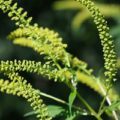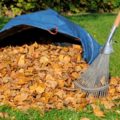
For most seasonal allergy sufferers, there is no worse time than late August. Generally starting in mid-to-late August, the rise in pollen levels leaves many people with itchy eyes, scratchy throats and skin irritations like a rash.
The worst of these seasonal allergens is ragweed, which usually doesn't start effecting sufferers until late summer, but this year, it has begun nearly a week early than was expected based on historical records.
With the onset of the impact of ragweed and pollen arriving earlier in the summer than previous years, many allergists note that the effects are being felt more strongly in some states than others. New Jersey, for example, has not been so significantly touched by the levels due to a decrease in hyper-pollinated plant life.
Additionally, the mold counts have also increased, Dr. Leonard Bielory, an allergist and immunologist at Robert Wood Johnson University Hospital, said in a press statement.
"With the rain that we have had an unusually cool seasonal temperatures, ragweed pollen release started a solid week earlier, and there have been mold spores flowing as well throughout the end of July and into August," he said. "Normally, higher temperatures and drier weather for this time of year promotes the normal release in the third week of August, without high mold spore counts."
In an effort to protect allergy sufferers from these harmful allergens, Bielory suggests a few helpful tips:
- Clean – Keeping your skin and clothing clean is the best way to ensure you aren't carrying pollen around with you. If you have spent any significant time outside, make an effort to wash your clothes and take a shower when you get home. This will help keep allergens outside where they belong.
- Mask – Wearing a face mask while you are outdoors in the garden or mowing the lawn is a smart way to avoid getting pollen in your sinuses or eyes. Using a face mask will make your time outside much more enjoyable. Bielory suggests that if you can't use a face mask, try asking a friend or family member who doesn't suffer from seasonal allergies to take on those tasks for you.
- Medicate – Even after pollen dissipates from the air, its effects will be felt by seasonal sufferers, which is why it is important not to let up on your medication routine too early into the allergy season. Be sure to keep up with your prescribed medicines so that your symptoms don't get the best of you.
When it comes to combating pesky allergens, be sure to do everything you can to create a safe and clean space inside your home by investing in an air filtration system, allergy mattress covers and other hypoallergenic materials. By implementing these precautions, you will ensure that your house is conducive to keeping you healthy, as well as be an inviting space to come home to after a day out in the elements.









